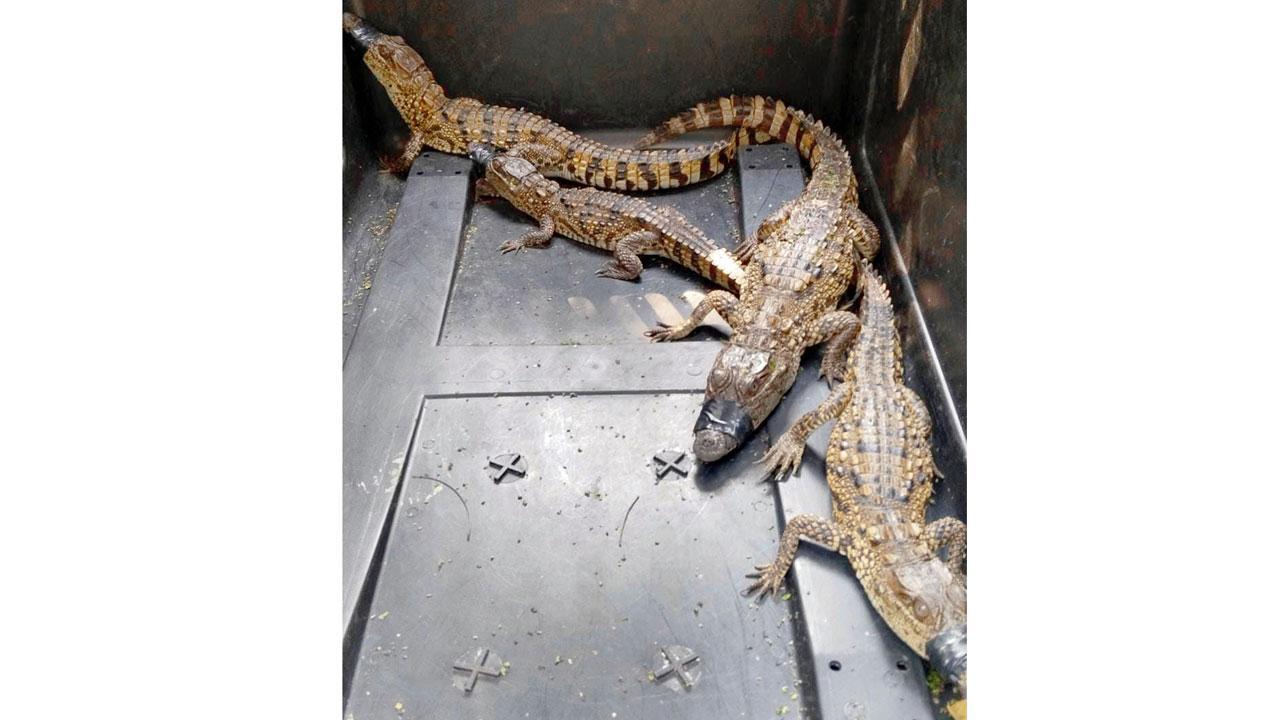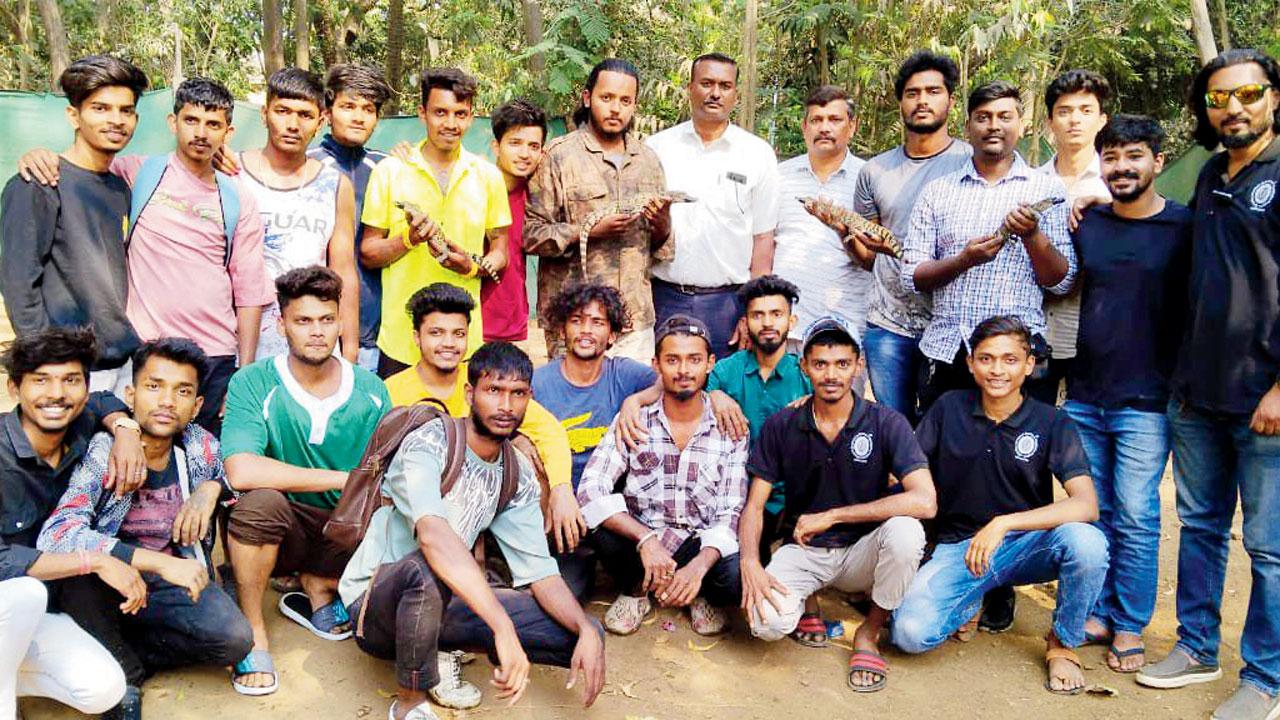Few days ago, the Mumbai Range of the Thane Forest Department (territorial) recieved information from the locals about a sighting of juvenile crocodiles in a man-made pit at Royal Palm.

The team that rescued the crocodiles
In yet another successful rescue operation conducted by the members of several NGOs along with the Forest Department, four juvenile Indian Marsh Crocodile were rescued from Royal Palms near Aarey Milk colony. Few days ago, the Mumbai Range of the Thane Forest Department (territorial) recieved information from the locals about a sighting of juvenile crocodiles in a man-made pit at Royal Palm.
ADVERTISEMENT
Deputy Conservator of Forests (DCF) Santosh Saste from Thane Forest Department (territorial), and Assistant Conservator of Forest (ACF) Girija Desai instructed Range Forest Officer (RFO) Rakesh Bhoir, to prepare a strategy to safely rescue the juvenile crocodiles. On the instructions of RFO Rakesh Bhoir, forest officer Roshan Shinde and Forest Guard Surendra B Patil, visited the spot and confirmed that the news was true.

The Mugger crocodile (Crocodylus Palustris), also called the Marsh crocodile, is native to the Indian subcontinent, Sri Lanka, Burma, Pakistan and some parts of Iran
A forest department official said, “After confirming the news, a rescue operation was started on March 2 by the forest department along with NGO volunteers to safely rescue the juvenile crocodiles.” The rescue operation was not easy. As there was about 10 to 12 feet of water in the pit and a layer of silt and water spread over the water, there were difficulties in carrying out the rescue operation.
Also Read: Mumbai: Days after Marol sighting, leopard spotted in Malad East society
“The forest department installed two water pumps and removed the water and silt in the pit and rescued four juvenile crocodiles on Friday. The rescue operation was successful due to the help of the volunteers from NGO SARRP, TO, HWAR, WWNF, WWA,” said Patil.
The Mugger crocodile (Crocodylus Palustris), also called the Marsh Crocodile, is native to the Indian subcontinent, Sri Lanka, Burma, Pakistan and some parts of Iran. It is most commonly found in freshwater environments such as rivers, lakes, hill streams, village ponds and human made reservoirs.
At one point, Mugger crocodiles used to be widespread throughout the subcontinent but overtime, their population has dwindled due to habitat destruction, hunting, loss of prey base, human encroachment and increasing conflict situations.
 Subscribe today by clicking the link and stay updated with the latest news!" Click here!
Subscribe today by clicking the link and stay updated with the latest news!" Click here!







